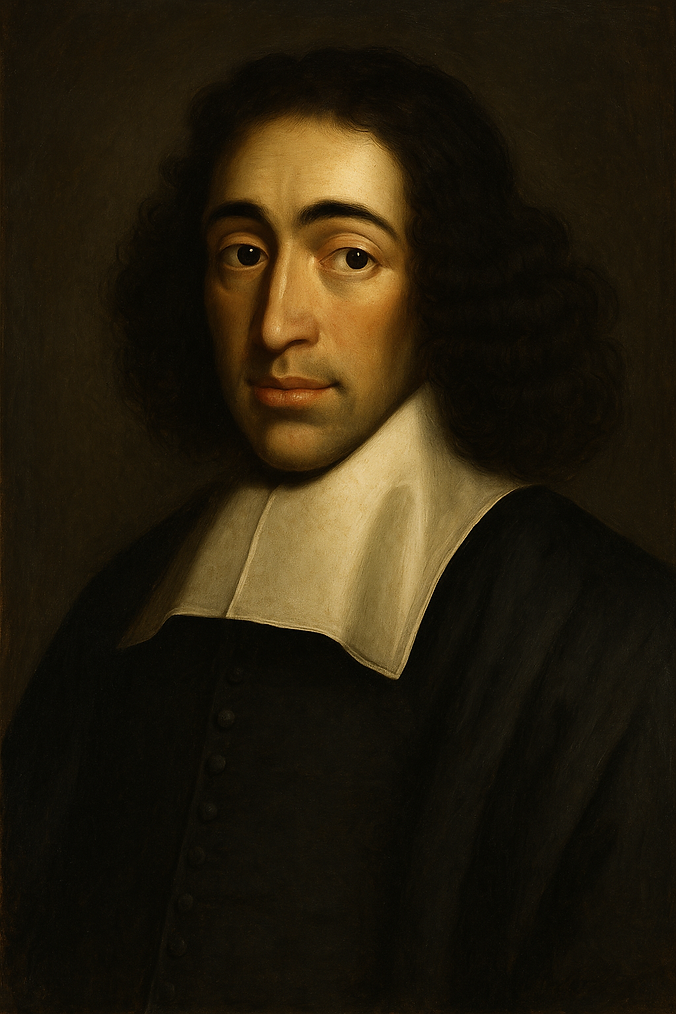
Experience the world of philosophy

Baruch Spinoza
Baruch Spinoza (1632–1677) was a Dutch philosopher of Portuguese-Jewish descent, widely regarded as one of the most important rationalist thinkers of the 17th century and a central figure of the Enlightenment.
Spinoza challenged traditional religious views by proposing a radical concept of God and nature. In his main work, Ethics, he argued that God and Nature are one and the same – a concept known as pantheism. For Spinoza, everything that exists is part of a single, infinite substance, and human freedom lies in understanding the necessity of the universe.
He believed that reason, not religious dogma, leads to true happiness and freedom. His emphasis on intellectual love of God (amor dei intellectualis) as the highest form of knowledge reflected his deeply spiritual yet non-theistic philosophy.
Spinoza lived a modest life, earning a living as a lens grinder. His ideas were controversial and led to his excommunication from the Jewish community in Amsterdam, but his work has had a lasting influence on philosophy, science, and political thought.
Key themes:
-
God ≠ a person, but identical with Nature
-
Rational ethics and determinism
-
Religious tolerance and freedom of thought
-
Human emotions explained through reason

